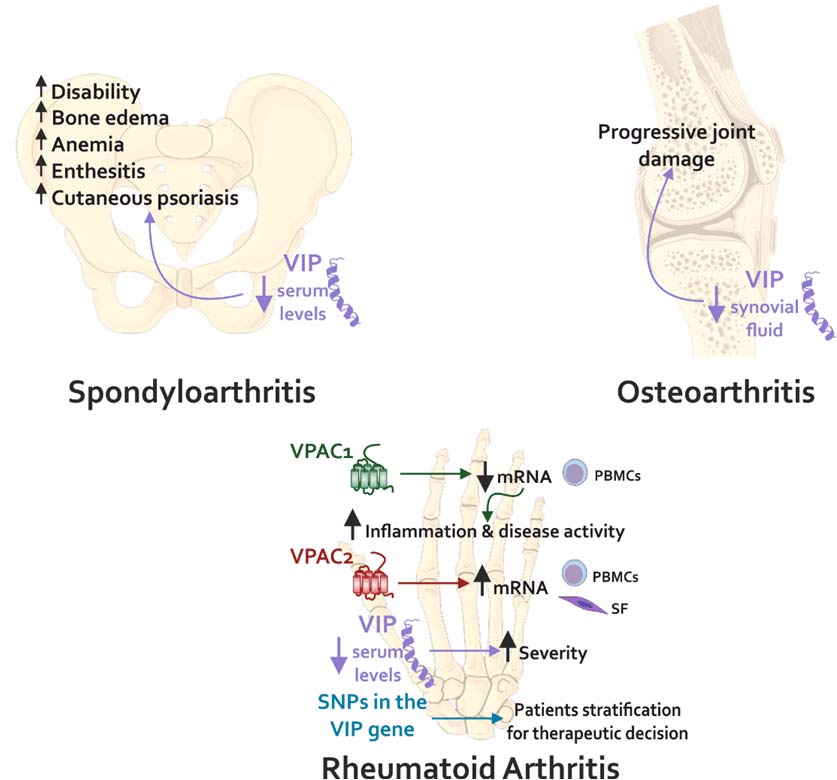Carmen Martínez, Yasmina Juarranz, Irene Gutiérrez‐Cañas, Mar Carrión, Selene Pérez‐García, Raúl Villanueva‐Romero, David Castro, Amalia Lamana, Mario Mellado, Isidoro González‐Álvaro and Rosa P. Gomariz
A clinical approach for the use of VIP axis in inflammatory and autoimmune diseases
Int J Molecular Sci 2019
DOI: -
RESUMEN
The neuroendocrine and immune systems are coordinated to maintain the homeostasis of the organism, generating bidirectional communication through shared mediators and receptors. Vasoactive intestinal peptide (VIP) is the paradigm of an endogenous neuropeptide produced by neurons and endocrine and immune cells, involved in the control of both innate and adaptive immune responses. Exogenous administration of VIP exerts therapeutic e_ects in models of autoimmune/inflammatory diseases mediated by G‐protein‐coupled receptors (VPAC1 and VPAC2). Currently, there are no curative therapies for inflammatory and autoimmune diseases, and patients present complex diagnostic, therapeutic, and prognostic problems in daily clinical practice due to their heterogeneous nature. This review focuses on the biology of VIP and VIP receptor signaling, as well as its protective e_ects as an immunomodulatory factor. Recent progress in improving the stability, selectivity, and e_ectiveness of VIP/receptors analogues and new routes of administration are highlighted, as well as important advances in their use as biomarkers, contributing to their potential application in precision medicine. On the 50th anniversary of VIP’s discovery, this review presents a spectrum of potential clinical benefits applied to inflammatory and autoimmune diseases.
